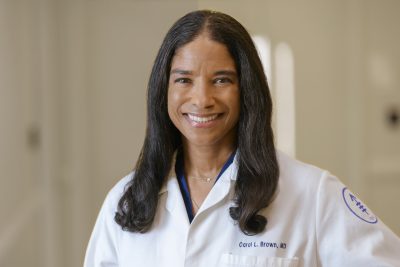One of the many offerings MSK has for cancer patients, caregivers, and survivors is the Rising Voices Choir. Len Robertson, a music teacher who came to MSK for treatment, wrote in Verywell Health about his experiences with breast cancer as a Black man and the support he received by participating in the choir:
“I’ve been a trained singer for years, but chemo took a toll on my entire body, including my voice. I couldn’t control my voice in the same way, and I was struggling to deal with that change. But everyone in the choir—including some doctors and nurses who were also diagnosed with breast cancer—loved my new voice and helped me stay positive during recovery and treatment.”
Read more about Mr. Robertson’s experience and road to recovery and advocacy.
